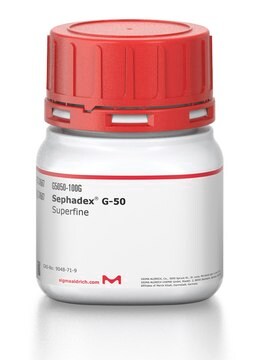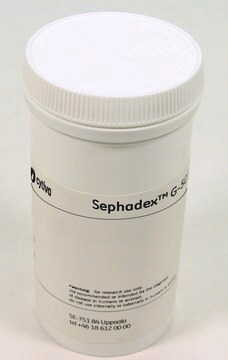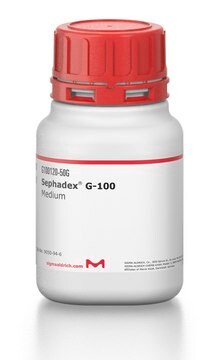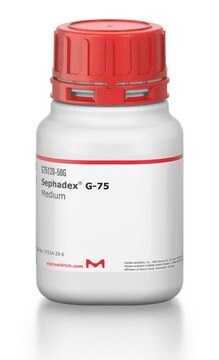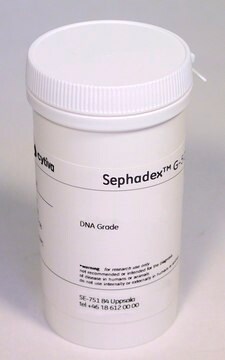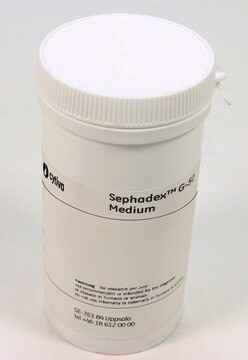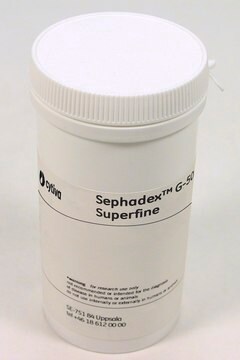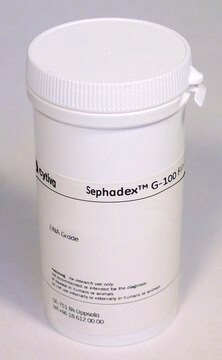S5897
Sephadex® G-50
BioReagent, for molecular biology, DNA grade, fine
About This Item
Produits recommandés
Qualité
DNA grade
for molecular biology
Niveau de qualité
Gamme de produits
BioReagent
Forme
beads
Technique(s)
DNA purification: suitable
Matrice
cross-linked dextran
Gonflement
1 g swells to 9-11 mL
Diamètre des billes
20-80 μm
Dimension de pores
exclusion limit (20 bp dsDNA (rA)20)
pH
2-10
Activité étrangère
DNase, RNase, none detected
Température de stockage
room temp
InChI
1S/C18H32O16/c19-1-5(21)9(23)10(24)6(22)3-31-17-16(30)14(28)12(26)8(34-17)4-32-18-15(29)13(27)11(25)7(2-20)33-18/h1,5-18,20-30H,2-4H2
Clé InChI
FZWBNHMXJMCXLU-UHFFFAOYSA-N
Vous recherchez des produits similaires ? Visite Guide de comparaison des produits
Description générale
S5897-100G′s updated product number is GE17-0573-02
Application
Caractéristiques et avantages
- Excellent recovery
- Minimal sample dilution
- Quick and easy to use
Informations légales
Produit(s) apparenté(s)
Code de la classe de stockage
11 - Combustible Solids
Classe de danger pour l'eau (WGK)
WGK 3
Point d'éclair (°F)
Not applicable
Point d'éclair (°C)
Not applicable
Équipement de protection individuelle
Eyeshields, Gloves, type N95 (US)
Certificats d'analyse (COA)
Recherchez un Certificats d'analyse (COA) en saisissant le numéro de lot du produit. Les numéros de lot figurent sur l'étiquette du produit après les mots "Lot" ou "Batch".
Déjà en possession de ce produit ?
Retrouvez la documentation relative aux produits que vous avez récemment achetés dans la Bibliothèque de documents.
Les clients ont également consulté
Notre équipe de scientifiques dispose d'une expérience dans tous les secteurs de la recherche, notamment en sciences de la vie, science des matériaux, synthèse chimique, chromatographie, analyse et dans de nombreux autres domaines..
Contacter notre Service technique

